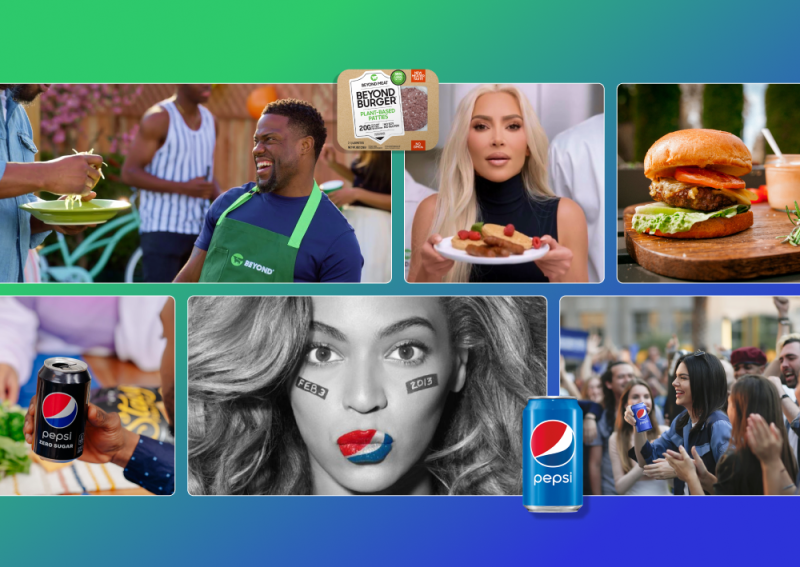Have you noticed how many people block ads but pay to stream their favorite shows? Consumers today are more selective than ever about who they pay attention to, what content they consume, and which channels they engage with.
That’s why iconic brands like Lego and BMW adopt a storytelling approach and weave their products into the storyline of TV shows and movies — rather than simply relying on traditional forms of marketing.
Keep reading to learn why branded entertainment is an exciting opportunity to cut through the noise, and how top brands use it to engage with their target audiences in a memorable and authentic way.
What Is Branded Entertainment?
Branded entertainment is where a brand creates a TV show or movie and subtly integrates its product or service into the story to increase brand awareness and improve brand perception. Branded entertainment, which can also take the form of online content, video games, and events, feels more authentic and offers a higher-quality user experience than typical commercials and online advertising.
Also known as “advertainment”, branded entertainment is different from content marketing, which brands usually create in-house and promote via their own channels like social media and email. Creating the next Netflix hit or Disney+ classic usually involves partnering up with a media production company or streaming service.
Branded entertainment is similar to product placement in movies, where you might see the wannabe detective tapping away on a MacBook, or the heroine puffing away on Marlboro Lights (at least until Carrie Bradshaw gave up smoking). The purpose is basically the same — it creates a positive connection between a product and a popular character, with the likeability or “coolness” of the person rubbing off onto the brand. The brand benefits from the popularity of the show and gets attention from people who wouldn’t normally hesitate to skip an ad.
Branded entertainment takes the product placement strategy one step further. With product placement, companies pay to have their brand name mentioned or products shown, but with branded entertainment, they are actively involved throughout the creative development process.
Why Is Branded Entertainment a Good Opportunity?
Branded entertainment is an exciting way to cut through the noise and engage with your target audience — especially if that includes hard-to-reach audiences that have installed an adblocker on their desktop, don’t watch cable, and maybe don’t even like ads at all.
Gen Z, in particular, is notoriously skeptical of ads — with 69% of them complaining ads are disruptive. Yet, they will binge-watch their favorite shows for hours, as 78% of Gen Zers have a Netflix subscription.
Branded entertainment appeals to consumers in a way that traditional marketing doesn’t — mainly because it doesn’t feel like marketing. Instead of interrupting the user experience, it is the experience.
Let’s dive into how top brands like Lego and BMW take storytelling to the next level with branded entertainment and find out what you can learn from it.
1. Lego Masters
The international reality television show Lego Masters is one of the most successful examples of branded entertainment of all time. In a ruthless elimination competition, teams complete a series of Lego-building challenges in the hope of winning a cash prize of $100,000, a Lego Masters trophy, and the title of Lego Master.
The popularity of the original British version of the show, which premiered in 2017, prompted other countries to follow suit, and there are now 18 international versions. In the US, the show enjoys a primetime slot on Fox hosted by actor Will Arnett. The show is jointly owned by production outfit Tuesday’s Child and The Lego Group and is represented by international distributor Banijay.
What makes Lego’s branded entertainment so successful? Firstly, the format. Reality TV is exciting to watch. Just like The Great British Bakeoff, Project Runway, Top Model, or Strictly Come Dancing, there is something awe-inspiring about watching contestants feverishly attempt to accomplish a task against the clock to win a big prize.
Secondly, as the show is genuinely entertaining, it’s the perfect way to showcase the Lego product without actively selling it.
Lucas Green, global head of content operations at Banijay told , “All the creative beats of the show, the tone of the show and the sense of humor and playfulness, it’s all Lego. It’s about driving home those core principles of Lego, even if it’s not just a matter of how many seconds you can get a Lego on the screen.”
2. BMW
BMW knows a thing or two about branding, and the luxury car manufacturer recently collaborated with Marvel Studios to produce the spy movie “Black Widow”. The action-packed thriller starring Scarlett Johansson and Florence Pugh features plenty of fast-paced driving scenes designed to showcase the BMW’s X3 and 2 Series Gran Coupé in action.
The exciting storyline and famous actors gripped viewers. Dark widow Natasha Romanoff — played by Scarlett Johansson — is forced to confront the secrets of her past when a dangerous conspiracy arises. Hunted by a mysterious force determined to bring her down, Natasha must deal with her history as a spy and broken relationships from before she became an Avenger. And what better way to do that than in a BMW?
Jens Thiemer, Senior Vice President of Customer and Brand at BMW said in a recent press release, “Having the BMW X3 and the 2 Series Gran Coupé playing key roles in ‘Black Widow’ is part of our marketing strategy, adding strong emotional value to the communication of these models. As emotional and thrilling stories play an increasing role in our brand communication, we are definitely looking forward to continue working with Marvel Studios.”
3. Proctor & Gamble
Proctor & Gamble — which owns a huge portfolio of brands including Always hygiene products, Ariel laundry detergent, Gillette razors, Pampers diapers, and many, many more — has a long history of branded entertainment.
Procter & Gamble created the first radio serial dramas in the 1930s, which is how the term "soap operas" was born. Then, they changed the face of daytime TV with soap operas like "As The World Turns" and "Guiding Light", which ran for 72 years. The brand has produced more than 50 made-for-television movies and mini-series, as well as beauty pageants and variety shows.
"As the creator of radio soap operas back in the 1930s, P&G has always recognized the importance of the right content and the right context to reach consumers," Marc Pritchard, P&G's Global Marketing and Brand Building Officer, told Forbes. "The world has changed a lot since the days of Ma Perkins, but the one thing that hasn’t changed is P&G’s belief in the power of entertainment to make people’s lives better.
Final Thoughts
Branded entertainment is a fresh approach that enables brands to connect with consumers and share their brand message in a way that adds real value. Brands can put themselves front and center of the user experience without being intrusive.
While not every brand will have the budget for a Hollywood movie, smaller brands can also benefit from taking a storytelling approach. But keep in mind, if you do want to explore branded entertainment, you’ll need a partnership deal, a killer story, and absolute clarity on your brand values.
![Illustration of two people looking at a car, tv, and Lego house [Cover Image]](http://images.ctfassets.net/7so8go2zrvbw/2afJVFJAO4ixd8dmFhDQbS/4e5f9ecc63b6a7c49e929ecb7f00419b/Blog_Cover_1288X400_-_2022-08-22T095359.325.png?w=1288&h=400&q=95&fm=png)





